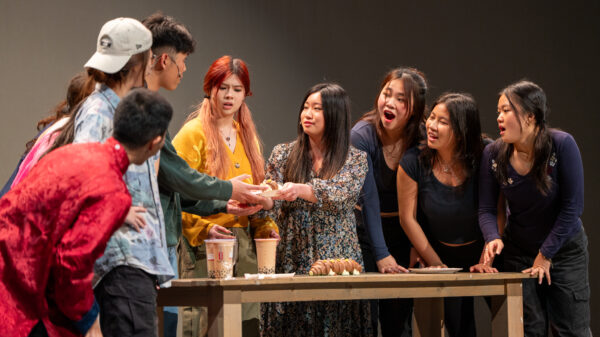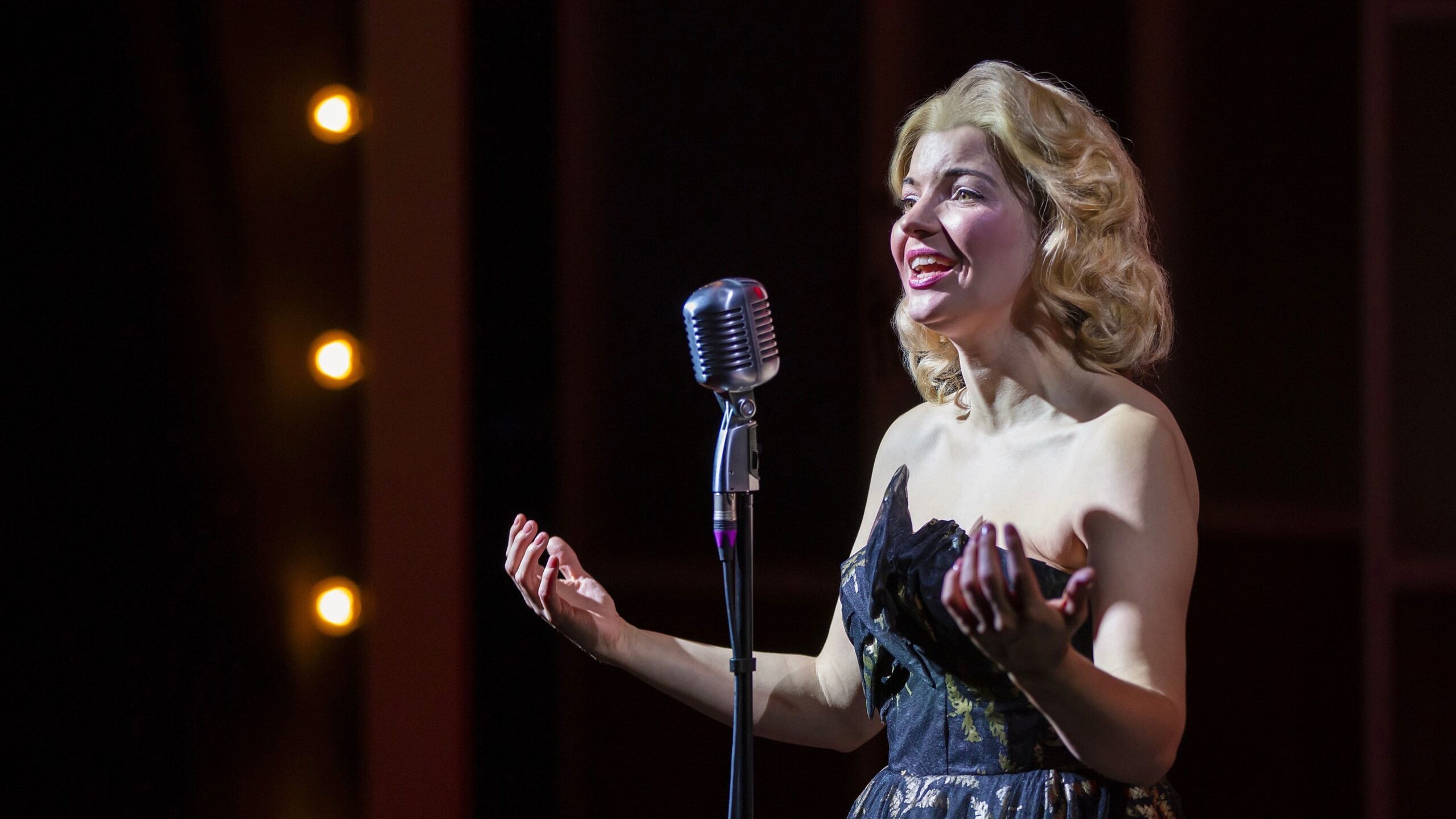Staff writer Rachel Cooke reviews “Mandela”, a new musical burdened by a lacklustre script that fails to keep up with the talent onstage.
Though insightful and dynamic, “Mandela” fails to dig deeper into the significant moments of the fight against the apartheid, instead focusing primarily on Nelson Mandela’s life, family, and time in prison. Opening with a moving portrayal of one of the first massacres to motivate this movement, this impressive show at the Young Vic starts off strong, showing the grassroots beginning of the campaign. Yet, as it goes on and moves through to Mandela’s victory and the liberation from apartheid, it becomes hard to ignore its lack of depth.
The first act shows the civil rights movement gaining momentum, with vibrant and strong musical performances resonating with impact. The choreography is perfectly coupled with the songs, delivering a message of unity, strength, and resilience through bold, evocative dance routines. However, the depiction of certain key moments in the movement is often shrouded in sentimentality rather than utilising the full potential of what could be discovered within them. Rather than expanding on the significance of what occurred during this time period, much of the first act focuses on Mandela’s relationship with his family, which feels at times like it drags on in irrelevant ways. Playing Mandela, Michael Luwoye delivers the most poignant moment of the first act during the icon’s renowned four-hour courtroom speech. While chained in handcuffs, Mandela articulates all of the basic rights that the civil rights movement is fighting for before concluding that he just wants the right to be human. It is a memorable moment and one that holds the most depth in this half of the show. Even still, it seemed to be cut short and replaced by a jumbled timeline of newscasting following the events and more moments with Mandela’s children.

L-R Zion Battles, Hanna Dimtsu, Posi Morakinyo, Blue Makwana, and Gregory Armand in “Mandela”. Photo by Helen Murray. The image has been cropped and compressed.
Much of the rest of the play takes place while Mandela and two of his companions are in prison. Torn from his family and from the ability to participate in the cause, Mandela spends the next 27 years here. An emotive quasi-friendship tentatively develops between Mandela and a prison guard. Though at first, the guard considers Mandela to be an evil criminal, he eventually disclaims this. By spending so much time with Mandela, the guard is able to see the truth in Mandela’s cause, that he is just an ordinary man who longs for his family beyond the prison walls and who is fighting to live an equal life with those around him. Though it holds the potential to be a powerful and emotive scenario, the feeling persists of never moving beyond the surface level. The nuance in the relationship seems to be lost in the generic roles of transformed hard-hearted guard meets innocent prisoner and predictable dialogue.
The tension between Mandela’s predictable world within the confines of prison, and the chaos being experienced in South Africa on the outside, continues to build throughout the second act. Both the political pressure present on a global scale and the strain on Mandela’s family life are depicted. This unease comes to a head when the Prime Minister offers Mandela a deal; walk freely out of prison and return to his family in exchange for renouncing the acts of violence against the state taking place on behalf of the movement in his name. In a strong duet with his daughter, Mandela refuses, both of them singing that this is no kind of true freedom.

The cast of “Mandela”. Photo by Helen Murray. The image has been cropped and compressed.
As the movement garners international support, many states begin to place economic sanctions against South Africa, eventually forcing the government to reconsider its approach. The play closes with a meeting between the Prime Minister and Mandela, in which Mandela explains that the onus is on the government to renounce the violence, as it is from them that it stems. The audience never learns much about the political side of the struggle towards freedom, and there are few interactions between Mandela and political leaders throughout the play. So, while the handshake between the two leaders is the satisfying, natural conclusion to the show, it lacks the emotion it should evoke. Rather than seeming profound, it rings a bit oversimplified, as all of the politics in the show have been.
The shocking talent of the cast is apparent from beginning to end, with the chilling power in the songs carrying the performance in places where the storyline lacked. Winnie especially performed many powerful musical numbers, though, surprisingly little is revealed about her character beyond simply being the wife of Mandela. When the songs struck with influence, they were emotive and resonating. When they did not, the talent of the cast went underutilised in the shallow lyricism. While overall a moving play executed by a talented cast, the simplistic script lacked dimension and left a sense of wanting to know more.
“Mandela” is playing at the Young Vic until 4 February. You can book tickets here.

















